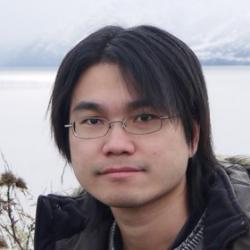
Image: Associate Professor Yi-Chia Wang
PhD in Economics (2008)
Yi-Chia Wang is an Associate Professor in the Department of Economics at National Taipei University in Taiwan. He completed his PhD in Economics at the Australian National University in 2008. Prior to joining National Taipei University, he worked at Tunghai University in Taiwan and the Centre for Law and Economics at the Australian National University. Yi-Chia has taught and conducted research in the areas of economic growth, applied econometrics and environmental macroeconomics. His research has been published in journals such as Economic Modelling, Resource and Energy Economics, International Journal of Economic Research and Economic Record.
Yi-Chia’s responses to questions:
What are some challenges you faced in teaching when you first started your academic career and how did you overcome these?
The teaching load in the universities in Taiwan is heavy, especially for new academic staff. We are required to teach a minimum of 9 hours per week throughout the whole academic year (i.e., 36 weeks in total). When I first started my academic career in 2009 at Tunghai University, I had almost zero pre-developed teaching materials for all the courses I taught. So preparing weekly teaching materials consumed most of my working hours. This heavy teaching demand inspired me to invest extra effort in making my teaching materials systematic and easily and efficiently updatable. For instance, in 2009 when most lecturers were still using chalk blackboards for teaching, I used laptop- and PowerPoint-based lecture notes and uploaded many e-learning materials online. The feedback I received from students was mostly positive since they could efficiently learn the subjects not only by attending face-to-face classes but also by reviewing the online materials whenever they wanted. One year later when I taught the repeating courses, these existing materials had saved more than 80% of my course preparation time. This time saved then allowed me to start wrapping up my research outputs for publications.
What would be your advice to our current PhD candidates, who may be early in their candidature or close to completion, on their academic career preparation?
One of the lessons we’ve learned from the COVID-19 pandemic is that we have to be able to express our ideas on the internet as clearly and fluently as through face-to-face communication. So you should start, as early as possible (but it’s never too late), creating your own academic channel/website to upload files, such as videos, to share your research outputs, provide extra teaching materials (especially if you are currently working as a teaching assistant), and invite comments from people all over the world. The videos that I suggested here need to be short and precise, and it takes time to truncate information and integrate video parts efficiently. In this rapidly growing digital world, traditional ways of teaching and research are challenged by many alternatives made possible by new technology. I believe that ANU would have resources to develop digital teaching- and research-related skills and I encourage the current PhD students to take advantage of these resources to be proficient in these skills before graduation.
How do you maintain a work/life balance while working in academia?
In the first two years of my academic life, I spent the majority of my day and night working, not just because of the heavy teaching load that I mentioned earlier but also because of the stress to publish within six years required for the academic promotion (a strict rule set by most universities in Taiwan). To be honest, a work/life “unbalance” is inevitable for most new university lecturers in such a competitive world. So, instead of suggesting how to balance work-leisure time, I think a positive attitude and regular exercise are key to maintaining good mental and physical health to overcome the stress in our early academic careers. After you finished the first two (or three) challenging years working in academia, your achievements and confidence developed in this time would have reduced your stress levels significantly; and only then you can genuinely enjoy your leisure time without worrying too much about the work burden on your shoulder. At that time, your work/life balance comes back naturally.
